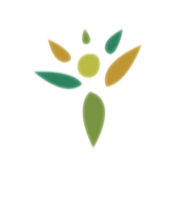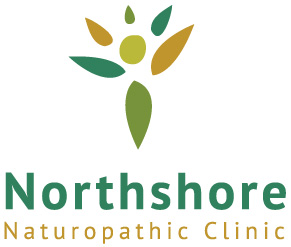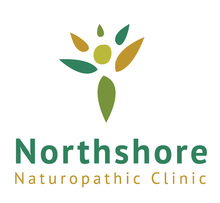By Dr. Matsen/Irene Hayton
Are you feeling stressed, depressed, fatigued? Suffering from decreased mental performance, short attention span, or poor memory? Then you may want to add Rhodiola rosea to your supplement program.
Rhodiola rosea is an herb native to the arctic regions of Siberia and the mountainous regions of Asia, the Arctic, and parts of Europe. Also known as Golden Root, Rose Root, Arctic Root, and Russian Rhodiola, its medicinal properties are contained in its fragrant root, which has an aroma similar to roses. Although relatively unknown in the West, Rhodiola rosea has been studied extensively in Russia and in Scandinavian countries for more than 35 years.
Historical Uses
This remarkable herb has been used for centuries in Russia, Scandinavia, and Western Europe to provide many health benefits including increase in physical endurance and cognitive function and treatment of fatigue, infections, depression, high altitude sickness, and nervous system disorders. Tea made from Rhodiola rosea was used in central Asia to combat colds and flu. Chinese emperors sent expeditions to Siberia to obtain Rhodiola rosea for medicinal purposes and the Vikings used it to improve their endurance and strength. And in more recent times, Russian athletes and cosmonauts have used this herb to improve their energy and performance.
Medicinal Benefits
Rhodiola rosea has numerous clinically demonstrated health benefits, including adaptogenic, cardioprotective, and anticancer effects.
Rhodiola rosea is classified as an adaptogen by Russian researchers. Adaptogens are natural plant products that increase the body’s ability to adapt to a variety of chemical, physical, and biological stress factors and maintain a balanced internal condition known as homeostasis:
- In animal studies, supplementation with Rhodiola rosea showed: an improvement in working capacity; increased resistance to environmental stressors; and improvements in memory retention and learning.
- A number of studies involving human subjects have demonstrated increased physical work capacity and reduced recovery time from strenuous exercise, as well as improved endurance, strength, coordination, and cardiovascular measures.
- A clinical study found that physicians on night duty experienced improved mental performance with supplementation of Rhodiola rosea.
- Medical students who took the herb during an exam period showed significant improvements in psychomotor function, mental performance, physical fitness, and general wellbeing as well as significantly reduced mental fatigue and need for sleep, improved sleep patterns, and greater mood stability and motivation to study.
- Other studies demonstrated that Rhodiola rosea may help with asthenic conditions which may manifest as fatigue, poor appetite, decline in work performance, irritability, sleep disturbances, headaches, and hypertension caused by physical and mental stressors.In an open clinical study of 128 subjects, supplementation with Rhodiola rosea alleviated symptoms of fatigue, headache, weakness, distractibility, and irritability in 64% of the patients.
Scientific research that demonstrates the cardioprotective properties of Rhodiola rosea include the following:
- In a Russian study, Rhodiola rosea was found to help prevent stress-induced damage and dysfunction in cardiovascular tissue.
- In an animal study, Rhodiola rosea protected against arrhythmias (abnormal heart beats).
- Human studies demonstrated that supplementation with Rhodiola rosea improved heart rate variability and the strength of heart muscle contractions. Functions of the sympathetic and parasympathetic systems were enhanced, allowing the output of more energy during stress while maintaining higher energy reserves.
Clinical studies show that Rhodiola rosea has anticancer, antioxidant, and immune system effects:
- Rhodiola rosea contains phenolic compounds, which are known to have powerful antioxidant properties—they help protect against free radical damage.
- Animal studies have demonstrated that Rhodiola rosea decreases the side effects of anti-cancer drugs and it enhances their cancer-fighting effects.
- In another animal study, Rhodiola rosea was found to have antimutagenic effects and to increase DNA repair in bone marrow cells.
- Rhodiola rosea enhances the immune system by stimulating natural killer cells and improving T-cell immunity, as well as by decreasing susceptibility to stress; stress suppresses immunity and reduces resistance to bacteria and viruses.
The adaptogenic, cardioprotective, and anticancer effects of Rhodiola rosea are believed to be due to its ability to influence the activity and levels of monoamines (dopamine, serotonin, norepinephrine) and opioid peptides such as beta-endorphins (stress-relieving, feel-good compounds). It is also believed that this beneficial herb enhances the transport of neurotransmitters within the brain. Rhodiola rosea may prove to be helpful in normalizing monoamine levels, which are thought to be imbalanced in conditions such as chronic fatigue syndrome, fibromyalgia, seasonal affective disorder (SAD), depression, and schizophrenia—further study is needed in these areas.
Other reported health benefits of Rhodiola rosea supplementation include:
- Weight loss: it activates lipase, an enzyme that helps break down fat, and it reduces stress that causes your body to store fat and crave comfort foods.
- Endocrine and reproductive effects: it enhances thyroid function and supports the adrenal glands; it regulates menstrual periods and helps with infertility; it increases libido and helps with erectile dysfunction.Rhodiola rosea may also help in the prevention of stress-related illnesses—such as high blood pressure, heart disease, and immune system suppression—due to its adaptogenic properties. More scientific research is required to determine if this is the case.
Side Effects and Contraindications
There are no known side effects of Rhodiola rosea and no reported interactions with other drugs or herbs. However, as with any supplement, it may cause allergic reactions in some individuals. Due to its stimulating effect, Rhodiola rosea should not be taken during pregnancy or while breast-feeding and those who suffer from bipolar disorder should not take it.
What to Look For
There are many different species of Rhodiola around the world with different chemical compositions. Rhodiola rosea is the species that has been used in human studies and certified safe for use. And since it’s the roots that contain its medicinal properties, be sure to choose a supplement that contains Rhodiola rosea root extract—this is the one that is the most biologically active, according to clinical studies. The active ingredients include rosavin, rosin, rosarin and salidroside; other species contain only salidroside. Choose Rhodiola rosea root extract that has been standardized to a minimum of 3% rosavins and 0.8-1% of salidroside.
The usual dosage is 200 to 600 mg per day. It is best absorbed when taken on an empty stomach, 30 minutes before meals. It should be taken early in the day, such as before breakfast and lunch, because it can interfere with sleep due to its stimulating effect.
Although further controlled clinical studies need to be done to confirm some of the reported health benefits of Rhodiola rosea, it appears to be very useful in improving mood and mental clarity, boosting energy and endurance, and increasing the body’s resistance to stress, especially when combined with positive lifestyle changes like those recommended on the Eating Alive Program.
References:
Kelly, G.S. “Rhodiola rosea: A possible plant adaptogen.” Altern Med Rev, 2001;6(3):293-302.
Brown, R.P., P.L. Gerbarg, Z. Ramazanov. “Rhodiola rosea: A Phytomedicinal Overview.” HerbalGram: The Journal of the American Botanical Council, 2002;56:40-52.
Darbinyan, V., A. Ketyan, A. Panossian, E. Gabrielian, G. Wikman, H. Wagner. “Rhodiola rosea in stress induced fatigue—a double blind cross-over study of a standardize extract SHR-5 with a repeated low-dose regimen on the mental performance of healthy physicians during night duty.” Phytomedicine, 2000;7(5):365-71.


